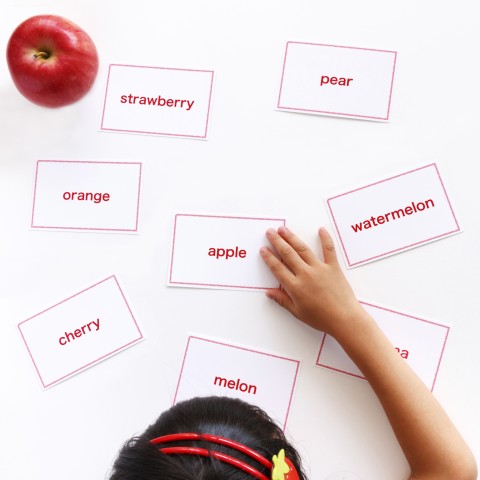
If you’re thinking about learning Polish but haven’t started yet, it’s probably because you have a few questions: Why should you learn Polish in the first place? Is Polish hard to learn, and if so, is it really worth it?
Well, there are many reasons you may want to learn Polish: traveling to Poland, a Polish partner, a Polish heritage, personal development, and the list goes on. You surely have your own reason for wanting to learn the language. The most important thing is to not let other people scare you with their negativity and the myths they share about the Polish language.
In this article, we’ll give you an in-depth review of what makes Polish hard to learn for some students, how to overcome those challenges, and what things about Polish are actually pretty easy. Let’s get started!

 Table of Contents
Table of Contents
- Is Polish Hard to Learn?
- The Hardest and Easiest Aspects of Polish
- How to Start Learning Polish
- Things to Keep in Mind When Learning Polish
- Why is PolishPod101 Great for Learning Polish?
- Final Thoughts
1. Is Polish Hard to Learn?
The short answer to this question is “No!” But we don’t blame you for asking.
Many people, before they start learning a language, try to find out whether that language is hard to learn. There are also many myths about languages—such as Polish—being particularly hard to learn. These myths, however, often come from people who failed to put enough effort into learning that language.
We can tell you that statements such as “Polish is so difficult” (Polski jest taki trudny!) are just excuses not to learn the language.
Other people simply study hard and manage to successfully learn Polish, whether they live in Poland or not. Of course, like any language, Polish has certain concepts that are rather challenging. But rest assured, it has plenty of simpler concepts as well!
2. The Hardest and Easiest Aspects of Polish
How difficult is it to learn Polish, then? It’s as difficult to learn as any other language; if you put your heart in it and keep studying, fluency in Polish is definitely accessible!
Let’s have a look at the hardest aspects (najtrudniejsze zagadnienia) of learning Polish, and then the easiest ones (najłatwiejsze zagadnienia).
A- The Hardest Aspects of Polish
There’s a number of concepts that Polish-learners find particularly hard to master (materiał wyjątkowo trudny do opanowania). In no particular order, here are the things that make Polish hard to learn:
- Pronunciation
Polish pronunciation can be quite challenging in the beginning. There are many Polish letters that are written similarly to each other but are pronounced differently:
- ➢ dz in dzwon (“bell”)
➢ dż in dżdżownica (“earthworm”)
➢ dź in dźwig (“crane”)
- ➢ s in sosna (“pine”)
➢ ś in śnieg (“snow”)
➢ sz in szlak (“trail”)
- ➢ c in ciocia (“aunt”)
➢ ć in ćma (“moth”)
➢ cz in cześć (“hi”)
There are also letters that are spelled differently but are pronounced the same way:
- ➢ ch in choinka (“Christmas tree”)
➢ h in herbata (“tea”)
- ➢ rz in rzeka (“river”)
➢ ż in żaba (“frog”)
- ➢ u in uroda (“beauty”)
➢ ó in próba (“attempt”)
Last but not least, we have the famous consonant clusters in words such as szczęście (“happiness”), czkawka (“hiccups”), or grzmot (“thunder”).

Even if Polish pronunciation is challenging, there are a few ways you can make the learning process easier. For example, both listening to Polish and repeating Polish words out loud are helpful in this regard. Check out our lesson Polish Pronunciation Made Easy for more tips.
- Noun Gender and Agreement
Polish nouns have grammatical gender. There are three genders in the singular (żeński – “feminine” / męski – “masculine” / nijaki – “neuter”) and two genders in the plural (męskoosobowy – “masculine personal” and niemęskoosobowy – “non-masculine personal”).
- ➢ kobieta (“woman”) – rodzaj żeński (feminine)
➢ facet (“guy”) – rodzaj męski (masculine)
➢ okno (“window”) – rodzaj nijaki (neuter)
➢ kobiety (“women”) – rodzaj niemęskoosobowy (“non-masculine personal”)
➢ faceci (“guys”) – rodzaj męskoosobowy (“masculine personal”)
Other parts of speech, such as adjectives, also undergo agreement with nouns in terms of gender, number, and case:
- ➢ Inteligentna kobieta (“a smart woman”) – rodzaj żeński (feminine), singular
➢ Przystojni faceci (“good-looking guys”) – rodzaj męskoosobowy (masculine), plural
- Noun Cases and Agreement
Nouns are governed by more than just gender; they also have cases. Grammatical case refers to a noun having different forms depending on the context in which it’s used. There are seven cases in Polish:
- To jest inteligentna kobieta. (“She’s a clever woman.” Or literally: “It’s a clever woman.”)
- the nominative case mianownik
- Nie znam tej inteligentnej kobiety. (“I don’t know this clever woman.”)
- the genitive case dopełniacz
- Opowiem ci o tej inteligentnej kobiecie. (“I’ll tell you about this clever woman.”)
- the dative case celownik
- Często widzę tę inteligentną kobietę. (“I often see this clever woman.”)
- the accusative case biernik
- Poszłam na spacer z tą inteligentną kobietą, o której ci mówiłam. (“I went for a walk with this clever woman I told you about.”)
- the instrumental case narzędnik
- Mówiłam ci o tej inteligentnej kobiecie w moim biurze. (“I told you about this clever woman from my office.”)
- the locative case miejscownik
- Hej, inteligentna kobieto! (“Hey, clever woman!”)
- the vocative case wołacz
B- The Easiest Aspects of Polish
Uff! We’re done with the hardest aspects of learning Polish. Now, we’ll go over the easier aspects of learning Polish!
- Tenses
So how easy is Polish to learn? Quite easy when you compare its tenses to those in English (which has as many as sixteen tenses!). Polish, on the other hand, has only three tenses: the past, the present, and the future. Have a look at the following examples:

- ➢ Czytam gazetę. (“I’m reading a newspaper.”)
➢ Czytam gazetę codziennie. (“I read a newspaper every day.”)
➢ Czytałem/Czytałam gazetę i słuchałem muzyki. (“I was reading a newspaper and listening to music.”)
The past tense in Polish has, respectively, masculine and feminine forms of verbs.
- ➢ Nie czytałem/czytałam tej powieści. (“I haven’t read this novel.”)
➢ Nie wiem czy będę im czytać dziś wieczorem. (“I don’t know whether I’ll read to them tonight.”)
- Polish is a phonetic language
Do you remember when we said that Polish pronunciation can be challenging because of certain letters? Some sounds are indeed challenging, but Polish is a phonetic language which means that it’s read as it’s written. To see why this is so significant, just read the following English words to yourself:
- ➢ bone – done – gone
➢ wall – wax – want
➢ loud – should – mould
Even though the bolded letter combinations are spelled the same way, they’re pronounced differently.
Many people ask things like “How hard is Polish to learn for English-speakers?” And to me, it seems that it’s much easier than their native language at times! Let’s have a look at some words in Polish that contain the same letters:
- ➢ koń (“horse”) – krowa (“cow”) – Kraków (“Cracow”)
➢ nowy (“new”) – kobieta (“woman”) – stolica (“capital city”)
➢ atak (“attack”) – tramwaj (“tram”) – mama (“mother”)
You can click on the words to go to recordings of their pronunciation. You see? The letters are read just like they’re written.
- Lack of articles
Articles are an important part of English. So you may be surprised to hear that when native Polish-speakers start learning English, they often forget to use them because their native language has no articles. Yes, you’ve heard us right: there are no articles in Polish.
- Kot siedzi i czeka. (“A/the cat is sitting and waiting.”)
- Pies szczeka. (“A/the dog is barking.”)
- Krowa muczy. (“A/the cow is mooing.”)
How hard is Polish to learn for English-speakers if they don’t have to learn certain grammar concepts, but forget them? It seems like a sweet deal to us. 😉
3. How to Start Learning Polish
Learning a language is a much easier process if it’s well-structured. As such, there are a few things you should focus on at the beginning of your language journey to make the entire process that much smoother.
A- Learn Pronunciation and Reading Rules
Polish pronunciation is a major reason that new learners tend to find the language difficult. That said, Polish pronunciation only seems challenging. When you put proper effort into learning it, you’re going to see that it’s really not that difficult.
Start by focusing only on how to pronounce individual sounds, then clusters of consonants, then whole words, and then the last stage, which is sentences. You can learn Polish pronunciation rules on our Polish pronunciation page.
While you practice your pronunciation, it’s important that you don’t forget to work on your reading skills. Reading rules in Polish are predictable, so learning to read is an easy way to see progress more quickly. Once you know how to read, it’ll also be easier to pronounce words and sentences in Polish.
B- Learn Basic Vocabulary

You’d be surprised how much easier Polish communication is once you master the basic vocabulary. Expressing yourself will make you feel more comfortable with the language. You’ll also have a great foundation to build upon as you advance to intermediate and advanced levels.
To learn what’s considered to be a “basic vocabulary,” check out the European Union (Unia Europejska) resource about what’s expected from lower levels according to the CEFR global scale. You can also opt to let PolishPod101 guide you through this process with our curated pathways for each level.
C- Work on Your Listening Comprehension Skills
Learning vocabulary allows you to not only express yourself, but also to understand what’s being said to you.
Listening to a new language can be an extremely fun activity. When you start understanding what’s being said, you’ll find it very rewarding!
Listening to Polish is particularly important if you want to really understand things like cases and gender agreement. Instead of sitting and studying grammar rules for hours and hours, you can spend this time more productively by listening to the language and training yourself to understand what sounds right and what doesn’t.
You can work on your listening comprehension skills by watching Polish movies (polskie filmy), listening to recordings (nagrania), and exploring the PolishPod101 lesson library.
4. Things to Keep in Mind When Learning Polish
Instead of asking yourself “Is Polish hard to learn?” keep the following things in mind:
1. You Should Practice Every Day
You don’t need to spend hours a day learning Polish. In fact, if you overcommit early on, you’re likely to experience burnout. Instead, focus on spending a bit of time with Polish every single day. Set a goal for yourself. Can you do ten minutes of Polish seven times a week? I’m sure you can.
2. Don’t Listen to People Trying to Discourage You
Many people, when they hear about your plan to learn Polish, will ask you if it’s worth it. They’re just trying to put you in a negative frame of mind; they want you to focus only on the negative or difficult aspects of the language, and not on the easier aspects.
Any language is difficult to learn if you take the wrong approach. Remember that learning Polish will be as easy for you as you make it for yourself.
3. Surround Yourself with the Language

Surround yourself with Polish as much as you can. There are Polish series and movies on platforms such as Netflix and Showmax that you can opt to watch in lieu of your regular English-language shows. In addition, you can find Polish music that you like or sneak some Polish in by changing the language of your phone and/or social media to Polish.
4. Find a Language Partner or Tutor
A language can’t be learned in a vacuum. Find someone with whom you can practice what you’re learning. You can find a language partner, but an even better option is to find a qualified language teacher or a tutor. You can upgrade your PolishPod101 account to get one-on-one access to a personal teacher.
5. Why is PolishPod101 Great for Learning Polish?
PolishPod101 knows exactly how difficult learning Polish can be, and we provide resources specifically for people who speak English as their native language. We offer a number of functionalities that will make your language-learning experience much easier, such as:
1. Lesson Recordings with Native Speakers
PolishPod101 has a massive library of lessons recorded by native speakers to help you learn Polish. By listening to Polish that you could hear on the street, you’ll be prepared for the real-life experience.
2. Unique Learning Modes
As a premium member, you can benefit from many unique learning modes. You could access in-depth lesson notes, exclusive custom word lists, interactive lessons and quizzes, voice recording tools, a Polish audio library, and much more.
3. Vocabulary Learning
PolishPod101 allows you to learn vocabulary through many different lessons, the word bank functionality, a Word of the Day email, a vocabulary slideshow, and a list of Polish core words and phrases. That’s a great opportunity to acquire all the useful vocabulary you need to get started.
4. Blog Articles
To learn more about the Polish language and culture, you can access our blog. You’ll find useful, real-life Polish expressions there, and so much more.
5. Learning On-the-Go

With PolishPod101, you can easily learn on-the-go on your devices. Download your InnovativeLanguage101 app for Android, iPhone, iPad, or Kindle Fire, and save time learning when you’d otherwise be idle.
6. Final Thoughts
I hope we’ve answered the question “Is Polish difficult to learn?” and have shown you that with the right attitude and tools, it’s not so hard at all. Like in any other language, there are easier and harder aspects to the language to consider.
By now, you should also know that learning with a well-designed tool is very helpful. An easy way to learn Polish is with PolishPod101, which offers our students an organized system to master the Polish language with little trouble. Don’t take our word for it, though. Start your account today and enjoy the platform for seven days. It’s on us!
Before you go, we’re curious: Is Polish a hard language for you so far? Which things do you struggle with the most? Let us know in the comments, and we’ll do our best to help you out!










